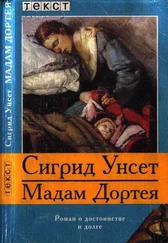And if Jesus could cure Tracy of cancer and the flu, why couldn’t he cure Cole’s mother and father of just the flu? Why couldn’t he cure even one of them?
Which one? A voice so silky and sly it had to be the devil’s, and Cole was afraid. He knew he should have called on Jesus then, he should have started praying. But he could not. He was too angry, and Jesus was too far away.
Instead, he did something he had not done in a while. He went to the upstairs bathroom and took from a shelf the jar of cream that PW used on his hands. He felt sneaky and not a little disgusted with himself, noiselessly unscrewing the cap and taking deep whiffs, like some kind of junkie. Not for the first time, he wondered how many secrets a person could have and still be a good person.
But the magic worked. The familiar vanilla balm spread through him. The splinter was still in his heart, but for a moment, at least, he felt comforted.
Besides the group classes, there are other activities, like softball and swimming, that bring homeschooled children together each week. There are field trips: the Creation Museum, Old Settlers’ Village, the House of Rocks and Minerals, the snake farm. In good weather they go hiking or spelunking, and now that the baseball and racetrack museums in Louisville are open again (they’d been closed during the flu), there are plans to visit them soon.
Cole doesn’t usually enjoy these outings. (In the past he’d always tried to get out of class trips, and these days he’d rather stay home and draw.) But better to be with the others than alone with Tracy (herself only too glad not to be teaching on her own).
Cole gets along with the children he meets in Salvation City, though he has yet to make best friends with any of them. He has never been the kind of person who makes friends right away or has more than one or two close friends at a time. Once he’d started middle school his parents had worried that he was too shy. One day his father said, “You know, they have some great medications for shy people now, especially shy kids.” The very suggestion had brought on revulsion and paranoia (pharma mind control? no thanks), and Cole was relieved that his mother had not been on his father’s side in this. But it had always bothered him. He had always thought it was his father’s way of saying he wished Cole was more popular.
There had been an even worse period of time, before Cole got to middle school, when it seemed that almost everything he did got on his father’s nerves. It was during this time that Cole began to suspect that when his father was a kid, he might have been a bully. His mother tried to explain. “Dad’s one of those people who’s never quite sure how to be around children, maybe partly because he was an only child himself.” The good news was that as Cole grew older, things would be different. “You’ll see. You and Dad are just going to get closer and closer.” And Cole had believed her. He knew what she was saying, and that lots of men couldn’t connect with their sons until the sons were almost men themselves. And now he felt bitterly cheated.
But—in his own eyes anyway—he had never actually been the pathetically shy loner his parents were worried about. If he hadn’t been exactly popular, or even part of any crowd, that didn’t mean he was a total reject, either. The hardest part had been knowing how disappointed his father was that Cole wasn’t the kind of kid he had been: good at school (not a grind but a great tester), good at sports. Cool. He knew that both his parents would probably have been less worried if he’d cared more about being popular himself, but most of the time he did not. He saw himself as part of the large herd—one of those kids, in between the mad cool and the loser geeks, who might as well have put on magic invisible-making hats when they got up in the morning—and he accepted that.
In Salvation City, things were different. To be sure, not all kids were equal. There were apocalyptic girls, there were alpha boys, and there were rapture children. But that didn’t make everyone else invisible. And the ones who would have been called rejects and dweebs and skanks and PBs—those kids weren’t taunted. No one bullied or excluded them.
“You won’t find any bullies or gangbangers here,” PW had promised. “And just in case I’m wrong—in case I might be missing something—all you got to do is let me know. Or better yet, go to Mason. You just point out any bully to Brother Mason, and I think it’s safe to say you won’t have anything more to worry about.”
But there has been no reason to go to Mason. No bullies—and no stoners or goths or super-annoying emo types, either, except maybe Michaela’s sister, Clover, who wasn’t permitted to watch The Passion of the Christ with everyone else, not after what happened at the snake farm. It was the sight of the snakes being fed live mice that started it. At first they thought it was the gift of tongues. But that wasn’t ecstasy Clover was feeling. She had raved all the way home on the bus, terrifying the other children.
The closest thing to a bully Cole has met in Salvation City is Tracy’s niece, Starlyn. But Cole would never say anything bad about Starlyn. And besides, he can’t point to anything specific Starlyn does that could definitely be labeled bullying. It’s more of an attitude. Darlin’ Starlyn, people call her. Apocalyptic and a rapture child: how could you not have attitude?
In the same way that PW never corrects the mistakes Tracy makes when she speaks, Tracy doesn’t correct Cole’s written assignments. Every one is handed back with Eggsssellent!!! written across the top. No other comments.
“He’s plenty bright and he knows so much already. And he reads the Bible all the time, God bless him. But he isn’t into the lessons, I can tell, and he does bad on some of the tests. Honestly, though, I don’t see the point in his spending so much time and effort on most of this stuff. It would be different if we were living years ago.”
Adele has to agree with her friend. “Back in the day, I always thought about how I was preparing my kids for a chance at a good job. But it’s doubtful Cole’s going to have to worry about that.”
“Be that as it may, there are rules and Christians still have to play by them,” says Pastor Wyatt. “I do believe we are living in the end times, but the way to prepare isn’t by changing our daily lives. We should go on living right, treating others with respect and kindness, witnessing, and of course praying. But the rest should be left to God. And I don’t believe he’d appreciate us trying to second-guess him. I’d also like to remind everyone that among the highest Christian values, along with faith and purity, are accountability and self-control. And for those out there who are thinking, Guess there ain’t much point in fixing the roof, now, is there? or Hey, maybe I can stop paying my mortgage or credit card debts—well, I believe such folks are playing with hellfire.”
But Cole figures PW must also believe school isn’t important anymore, because he pays almost no attention to what Cole and Tracy are doing.
“I’m not the one to ask about academics. I was a lousy student myself.”
Cole remembers his parents saying that they could never fall in love with anyone who wasn’t smart; they couldn’t even be friends with people who weren’t smart. And though they insisted that Cole, though unfortunately lazy, was very smart, too, he used to worry that he wasn’t as smart as either of them wished.
“I married Miles for his brains,” his mother always said.
Читать дальше













